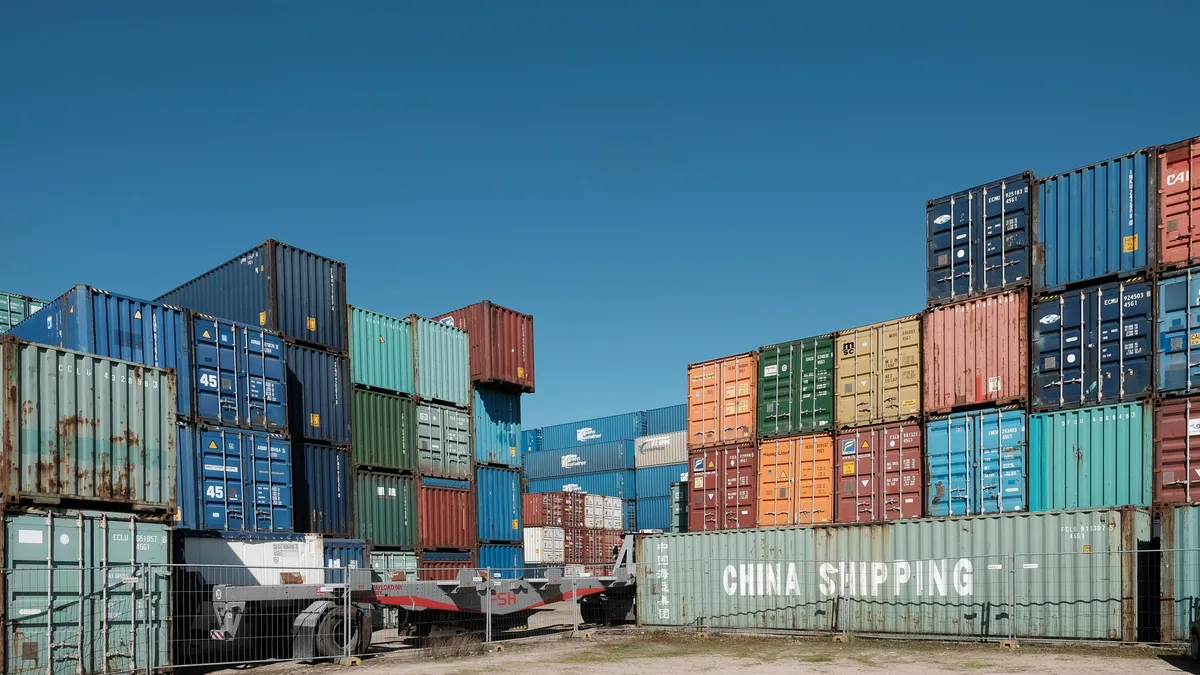Dive Brief:
- The US-China Business Council (USCBC) recently released the results of its annual member survey, finding 80% of its 220 constituent companies had been adversely affected by the trade war with China, up 8% from last year. The firms reported losing sales, facing supply disruptions and facing a decline in regional market share. Only 20% of the respondents expressed optimism about their prospects in China five years in the future, the lowest level in the 19 years the survey has run.
- The survey also found in 2019, 37% of the council's members said they lost sales in China due to their Chinese partners' concerns about doing business with American companies, a seven-fold increase from last year. USCBC's analysis of the results found this was likely due to the number of firms that have been reducing investment and/or are exploring shifting out of China to avoid tariffs.
- Despite the ongoing uncertainty, 87% of USCBC member companies do not plan to move operations out of China. For the 13% that are planning to move (up 3% from 2018), increased costs and the impact of tariffs were the primary motivators.
Dive Insight:
It is important to note the USCBC survey concluded before President Trump's most recent tariff announcement, increasing the duty rate on all four tariff lists by five percentage points, therefore any additional shifts in member sentiment are not reflected in the results.
U.S. companies operating in China reported increased profitability from 2018 to 2019, with many citing the expanding Chinese domestic market for goods as a cause for optimism. Yet a growing number of member companies project revenue from China will decrease in 2019. About a quarter of member companies expect revenue to decline, almost triple the number from 2018.
In addition to tariffs, companies cited China's policy and regulatory environment as a concern, making it difficult for foreign firms to receive licenses, maintain compliance and increase market share in the country. However, according to the report, as the trade war has begun to take its toll on the Chinese economy, and threats of a global economic slowdown increase, China's leadership has begun to recognize the need to improve conditions to keep foreign businesses, though reforms targeted at leveling the playing field between domestic and international firms have been slow to materialize in the current political environment.
"The optimism that member companies can continue to participate in China’s future economic growth and development as both contributor and beneficiary is colliding with troubling new realities," USCBC President Craig Allen said in a press release. He continued to say U.S. trade negotiators should remember the benefits American companies' operations in China can bring to consumers in the U.S., in the form of affordable products and job creation.














